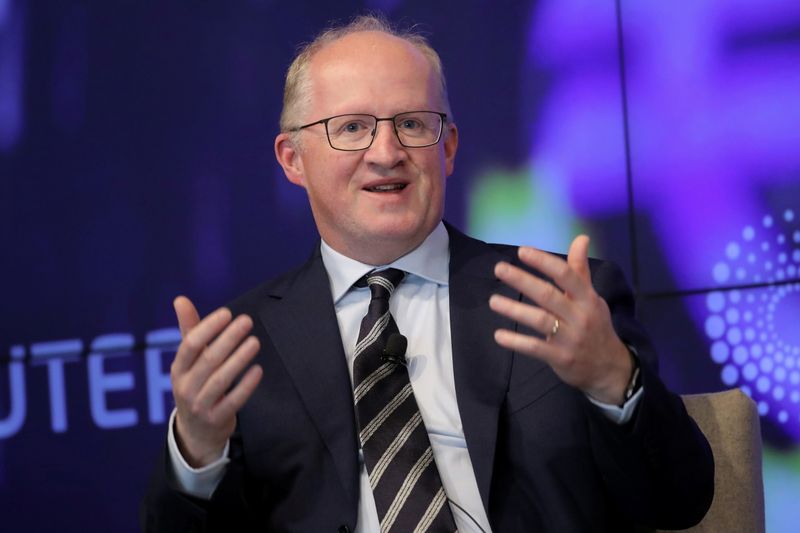FRANKFURT (Reuters) - Inflationary pressures in the euro zone are slowly building and the deflationary drag from the shift to a digital economy is unlikely to be permanent, European Central Bank chief economist Philip Lane told the Financial Times.
Euro zone inflation has undershot the ECB's target of almost 2 percent for seven years and some academics argue that perhaps the nature of inflation has changed, making super-low consumer price growth the new norm.
"A lot of these digital developments may generate important relative price movements," Lane was quoted as saying on Sunday. "But I am not so sure you can say that the overall inflation rate in the economy is permanently affected."
Wage pressures are already building in services and this is likely to happen for goods as well since firms are unlikely to accept a permanent squeeze in their profit margins, Lane added.
"Inflation is going to move up slowly and that has been our forecast. It is going to take a while," Lane said.
Weighing in on a recent debate about giving greater consideration to housing costs in inflation measures, Lane noted the complications.
"We at the ECB would agree that there should be more weight on housing - but there is a difficulty and this has been looked at several times before," Lane said.
He said that according to some estimates, inflation may be 20 to 30 basis points higher now if the cost of owner-occupied housing was included.

"But let me emphasise that sometimes it goes the other way. Housing is quite cyclical, so in a downturn the inflation rate would fall more quickly because if you have a negative shock, if you look at the proxy measures that are being generated, they do fall more quickly in a recession" he said.